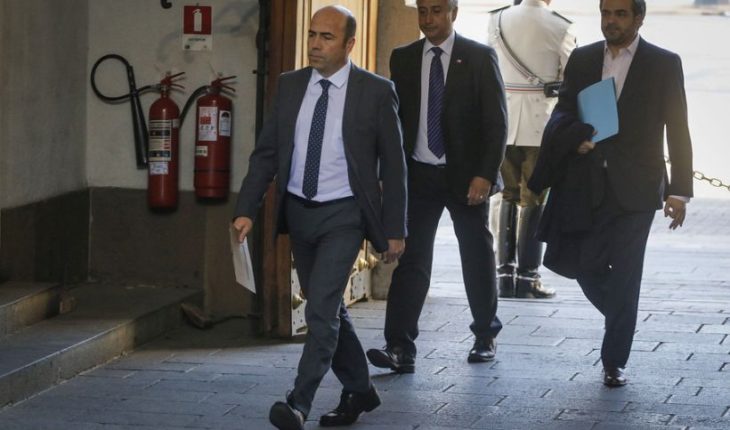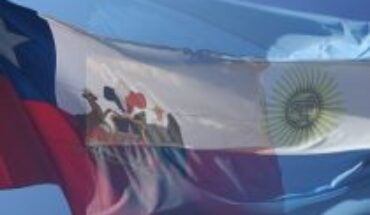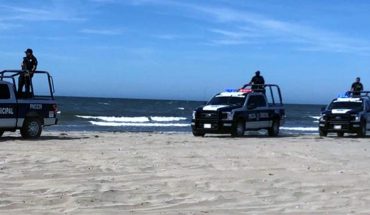After two weeks since the meeting of the National Security Council (Cosena) convened by President Sebastián Piñera in La Moneda, the Presidency composed the minutes of the event.
At that meeting were present as Comptroller Jorge Bermúdez, the President of the Supreme Court, Harold O Brito, the holders of the Senate and the Chamber of Deputies, Jaime Quintana (PPD) and Iván Flores (DC), respectively, in addition to the four commanders in head of the FF. AA and Order and Security, Ricardo Martínez (Army), Osvaldo Larrañaga (Armada), Arturo Merino (Air Force) and Mario Rozas (Carabineros). They were joined by the ministers of the Interior, Gonzalo Blumel and of Defensa, Alberto Espina.
The document can appreciate the views given by the State authorities to the President. A widespread consensus at the meeting was the weakness of the intelligence system. In addition, there was a recognition of Carabineros that his work was overwhelmed by the social outburst, and there was a debate by the authorities of the Congress and the Comptroller’s Office on the relevance of the subpoena.
At that meeting Piñera defended his decision to decree a constitutional state of emergency, noting that “the acts of violence and vandalism that we have observed these days have seriously harmed the country and citizens, with a serious impact on the confidence and the growth capacity of the economy, to which the Government has proposed a Citizen Security Agenda.”
“If the States of Emergency had not been decreed, it would not have done its duty, given the serious situation of violence in the country and its impact on public order and citizen security. In this sense, a brief review is carried out on the damage caused in the country, which mainly affected the most vulnerable sectors of our population. And that the challenge for police forces was of such magnitude that the armed forces were required to collaborate,” the Military said.
On the other hand, the President of the Senate noted that he “does not share the call to the council” and called for the minutes of the session to be public. Quintana also sentenced “vandalism, violence manifested in looting, arson and other similar acts, and indicated that the duty to inform the National Congress of the measures taken within the framework of the States of Exception and hopes that no other exceptional measures will be used in the future.”
The President of the Supreme Court, Haroldo Brito referred to the observance of human rights, as he noted that “a basic condition for restoring trust and peace of mind is the observance of human rights, especially by institutions that must ensure such rights and enforce them,” adding that “as the judiciary, they have been concerned that judges will go to the coroners in search of information, so that people do not have the uncertainty of how their relatives are doing . This is a basic condition for restoring order and the best coexistence.”
The minutes reported that the Controller questioned the call and the intelligence services, as Bermudez stated, according to the minutes, that “the regulation of the National Security Council is in the Constitution, not looking at it the call made”.
The comptroller also stated “that it is a resabio of a preterite era of our Republic, when civilian power was contingent upon military power. In his view, there would be no argument stake in understanding that we are facing a national security problem, since there is a public policy problem here, which warrants other kinds of solutions. With regard to the data that have been provided at this session, such as Comptroller’s, the work that is due to them by law is being carried out, taking reason for those administrative acts that must be subject to this procedure”.
“Little is known about what failed for the country to reach the situation it is in. A lot of resources are spent on Intelligence, so he would like to know what happened and because no preventive measures were taken to prevent it,” he added.
The FF response. Aa. In the turn of the commanders-in-Chief, according to the minutes the first to intervene was Martínez, who clarified that “with regard to the Armed Forces, they are prohibited from carrying out internal intelligence operations, only residual with respect to Carabineros or the ID. It suggests that an Intelligence Act be advanced so that it can be ahead of disruptive actions.”
“Public order is carabineros’ responsibility, and the Armed Forces have a primary responsibility in defending sovereignty,” Martinez added, saying that “the police have made a tremendous effort to deliver greater peace to citizens. He explains that neither the police nor the members of the Armed Forces go out on the streets to cause harm, nor to have them harmed.”
Secondly, Larrañaga said that “the function of the institution is established in the Constitution, and it is the defense of the homeland and that “its actions have been carried out in accordance with the Constitution and the laws”. With regard to the Rules of Use of Force, he states that “they have been executed by the Heads of National Defense, there has been a gradual and proportional use of weapons, with caution for the lives of the people. In this sense, the Navy’s experience in peacekeeping missions has enabled them to have trained personnel to deal with the situations experienced.”
In addition, he noted that the “participation of the institution (Armada) in the States of Emergency was carried out with full respect for the Force’s Rules of Use, concentrating its support from the air. He later noted that “members of the Armed Forces did not take to the streets to assault the population, but to protect it. He explains that it was the main concern of the President of the Republic and the Minister of National Defense.” He also joined those who thought that the Intelligence service “should be modified in terms of its functions and capabilities.”
“In relation to the feeling that the Order Forces have been overtaken (Merino) they have pointed out they are making a huge effort to maintain public order, so we must support them,” the record states, on the involvement of the FACh commander-in-chief.
For his part, the director general of Carabineros, Mario Rozas thanked Piñera “for his support and support” and added that the Mandatario “asked him to fulfill the mission of the Institution, warning that it must be done with unrestricted respect for human rights”.
He later stated that “we are experiencing an unprecedented situation, with more than 3,500 events of serious disruption to public order, including fires, plunders and property damage.”
Rozas described, according to the document, that at that time there were “more than 1,180 Carabinieri injured, of which 200 suffered serious injuries; more than 600 vehicles of the Institution have been damaged, as well as barracks; 3.4 million people have gathered to demonstrate and more than 11,000 detainees are in custody.”
“When the outbreak began, Carabineros’ work was overwhelmed and the operational deployment was very large,” argued the uniformed police chief.
When referring to the dD theme. HH., Rozas stated that “Carabineros has a close relationship with the INDH, which has been consolidating. He explains that for every complaint they have filed, an internal summary has been opened. That is, for each allegation of abuse, a summary is opened. It points out that, in the case of the 12 carabinieri that would be formalized, the cases were raised by the institution itself, making the respective complaint to the Public Prosecutor’s Office. He points out that they are the first to promote respect for human rights in Carabineros.”
The defence to the call of the CosenaThe Minister of Defense, Alberto Espina, for his part, supported the decision of the representative to decree a state of emergency, as he assured that “it is a public and notorious fact that there were serious events such as fires, damage to the property people, so the President of the Republic fulfilled his duty to respect the Constitution.”
“During the government of Ricardo Lagos, in full democracy, establishing new functions and structure, so it is not meant to say that it is a resabio of the past, but is a product of the legislative debate that took place in Congress”, and that the modern definition of national security” says it relates to an alteration to the normal development of the country. That is, an alteration to security, so quoting the Council was a correct decision,” Espina said.
Gonzalo Blumel, Minister of the Interior, said that “modernizing the Intelligence System, whose processing has been reinforced by the emergencies presented, will allow to anticipate and react in order to be able to sanction the crimes that violate security people.”
According to the record, the comptroller, Jorge Bermudez, again took the floor to ask “whether public order is incorporated into the concept of national security”.
“He swore to abide by and enforce the Constitution. And that the current Constitution includes the National Security Council as an advisory body to the President, so it considered it important to know the views of the highest authorities of the nation, in a period as complex as the last three weeks have been,” he says the minutes on Piñera’s invention during that meeting.
The document says that the President closed his reply stating that “no one wants to issue a state of emergency, but it was his duty to dictate them, within the framework of the Constitution, to safeguard public order and citizen security, and to be able to protect the most vulnerable people.”
Finally, the last authority in interveNir was the president of the Chamber of Deputies, Ivan Flores, who reinforced the point of his Senate peer, calling for a new constitution.
“In relation to the new Constitution, he points out that Congress has already departed lobbying, and the Government must take this challenge, because we must have a constitutional discussion in which the public participates,” the minutes states.
translated from Spanish: Cosena Proceedings: authorities questioned convocation and intelligence system
November 19, 2019 |





